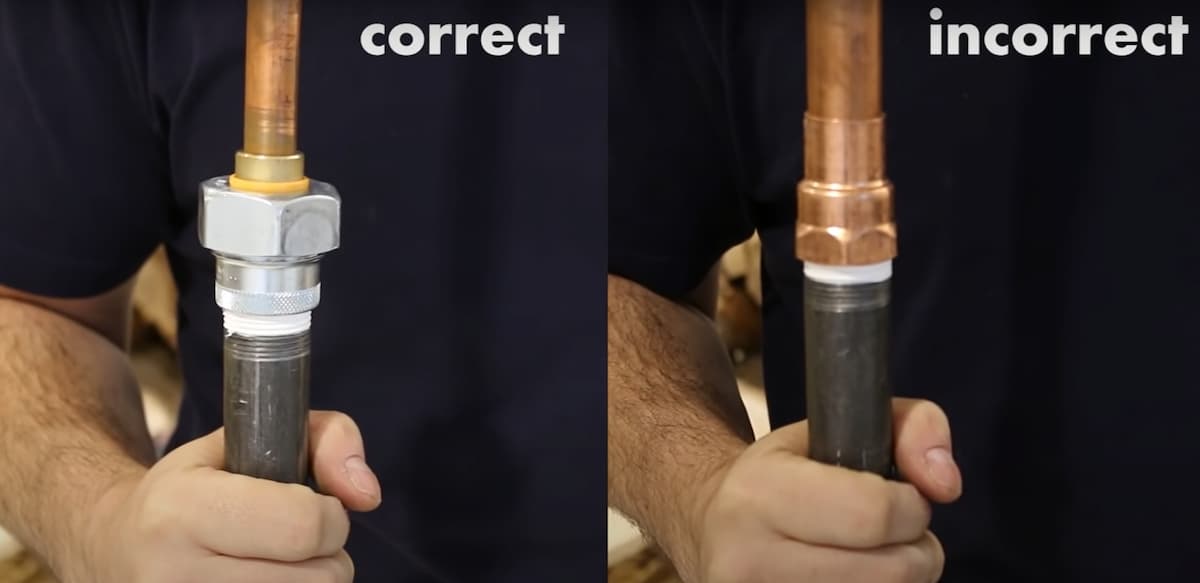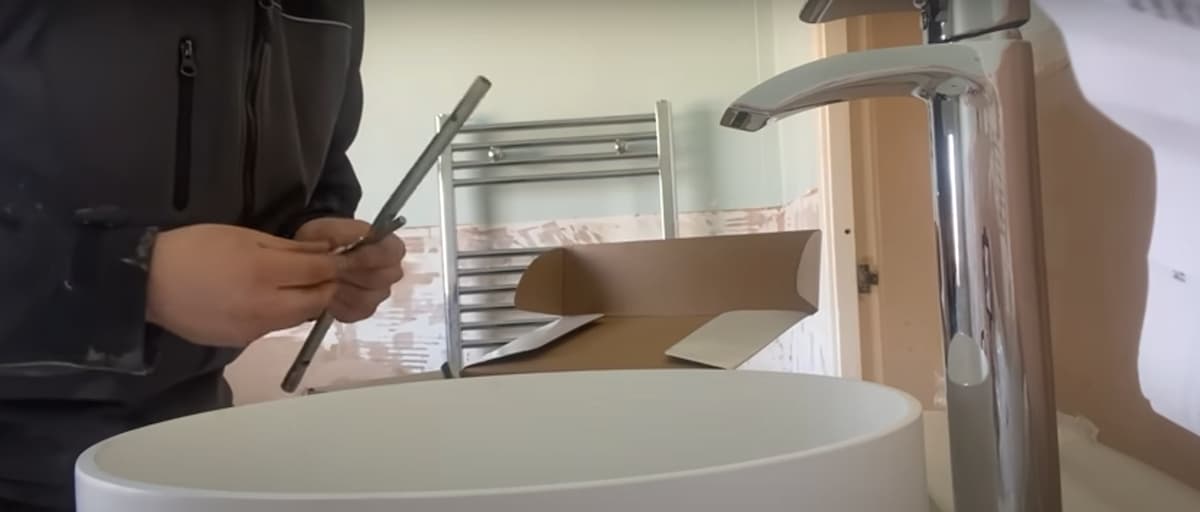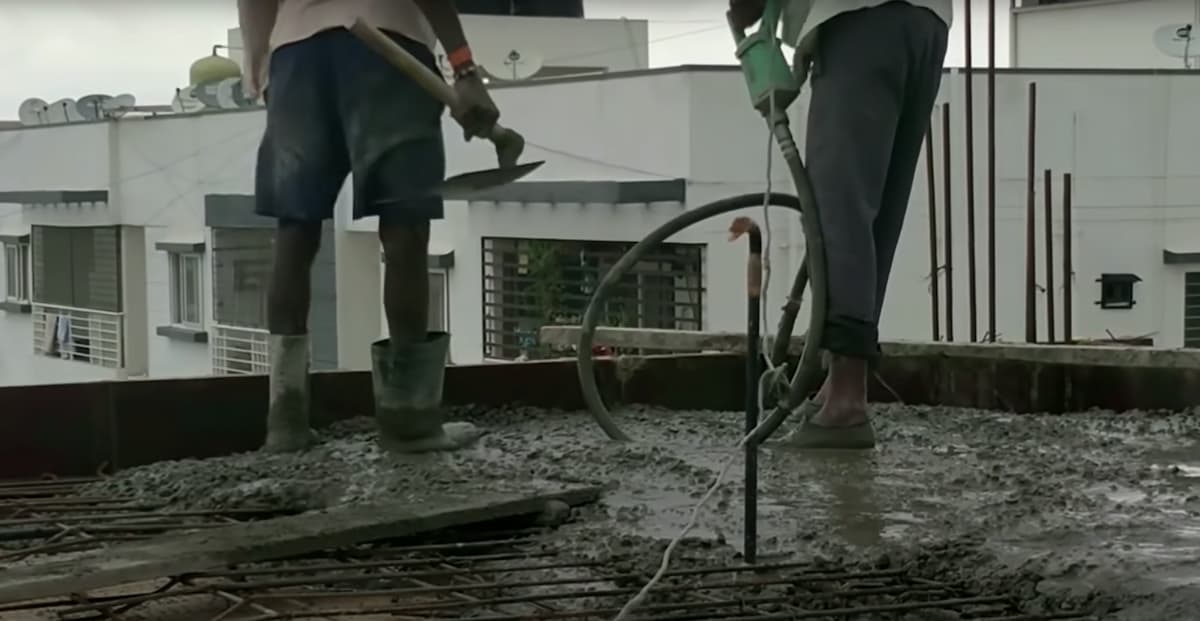
Industrial plumbing refers to the installation, maintenance, and repair of pipes that connect commercial buildings or other places of business with a water supply. Industrial plumbing may also refer to pipes that transport wastewater away from commercial buildings or other places of business.
In other words, industrial plumbing can refer to pipes that either bring or take water from a building.
Industrial plumbers are trained in the installation of fixtures and equipment for the distribution of water and waste within buildings.
Industrial plumbing is a specialized field that is part of the larger category known as commercial plumbing. Commercial plumbers install toilets, sinks, faucets, and other equipment in homes or businesses.
Industrial plumbers are responsible for installing equipment that is unique to different industries:
- food service
- healthcare
- chemical manufacturing
- etc
Industrial plumbing systems include pipes that transport both water and wastewater (wastewater is the liquid produced when you flush a toilet). Water from a building’s water source is filtered, heated, pumped, and distributed through water lines to taps around the building. Wastewater is treated before it is transported away from a building. Both water and wastewater pipes are made of metal or plastic (such as PVC).
Industrial plumbing also includes piping systems that carry steam or other gases for heating or cooling buildings. Industrial gas pipes are made of metal or plastic (such as PVC).
Industrial plumbers must have education and experience to be licensed by the state in which they work. The process for becoming a licensed industrial plumber varies by state, but it usually involves completing courses at technical schools and passing a written exam. Industrial plumbing is regulated by the various states in which plumbers work, and the licensing requirements vary by state.
Common Types of Industrial Plumbing Services
The most common type of work that an industrial plumber does is the installation and repair of water pipes, vents, and gas lines. Industrial plumbing can also include constructing fixtures such as sinks or showers by using fittings. Fixtures do not refer to toilets since they are covered under a different trade. However, these fixtures may be made up of many parts that are individually manufactured and soldered together on site.
Plumbers sometimes have to install small appliances like coffee machines or toasters in commercial spaces; this would fall into the category of industrial plumbing because these appliances require specialized piping for operation. They also sometimes install large equipment like compressors or air handlers for heating systems when installing new buildings or businesses in commercial areas that already exist.
Industrial plumbers also work with pipe cutting and threading for larger-scale projects. Pipe cutting is a process that involves sawing or shearing sections of pipe to adjust their length or diameter. Threading involves using tools to adjust the size of the hole in drain pipes so it fits together more tightly, reducing leaks.
Cost of Industrial Plumbers in Australia
Industrial plumbers in Australia generally charge per hour for their work. The amount will vary depending on the type of plumbing service they perform, the location and time it takes them to complete the job, and their experience level.
For example, you should expect to pay more for a complex job like adding plumbing fixtures than you would for a simple job like replacing a washer in a faucet. There are no exact prices for plumbing services in Australia because they vary so much, but you should be prepared to pay anywhere from $80 per hour and upwards for plumbers in Australia in 2021.
Industrial Plumbing vs Commercial Plumbing
Industrial plumbing systems can differ from commercial systems because they are constructed with different characteristics and requirements. For example, industrial plumbers must install equipment that is unique to a particular industry such as foodservice, healthcare, chemical manufacturing, etc. Commercial plumbers are responsible for installing equipment like:
- toilets
- sinks
- faucets
- other-equipment in homes or businesses.
Subsequently, industrial plumbing systems tend to be more complex than commercial ones. Commercial piping can sometimes have thinner walls depending on the material being used (PEX or CPVC) and will usually not require external insulation since most commercial buildings are indoors and heat is easily available to keep water from freezing in cold weather.
Industrial pipework tends to be larger to accommodate the high quantities of water and pressure that it has to withstand since industrial buildings can be much larger than homes or businesses. Commercial pipes are also easier to access, making them ideal for DIY improvements; however, commercial piping must be more durable because it is often exposed to rough handling and extreme temperatures from outdoor elements.
Commercial plumbing can include many different types of installations. These can include bathroom fixtures, large pieces of machinery, and other necessary appliances in commercial spaces. Commercial plumbing often has to be more durable than residential plumbing because it is often exposed to rough handling and extreme temperatures from outdoor elements.
Is an Industrial Plumber the Same as a Commercial Plumber?
The answer to this question is no, an industrial plumber is not the same as a commercial plumber. The two terms are often used interchangeably, which may lead to confusion.
Industrial plumbers work with larger-scale projects and equipment than commercial plumbers. They also cover a wider variety of applications than the tasks that commercial plumbers do for a home or a business.
Commercial plumbing can include many different types of installations such as bathroom fixtures, large pieces of machinery, and other necessary appliances in commercial spaces. So, while an industrial plumber can certainly do some commercial plumbing work in their day-to-day life, a commercial plumber is not qualified to install large equipment or complexes systems within an industrial area.
Piping is one difference between the two; commercial piping tends to be smaller and easier to access. For example, many commercial buildings use polyethylene pipes (PEX or CPVC) because they are cheaper materials with smaller diameters that are also more flexible than lead pipes for small plumbing projects. On the other hand, industrial piping is generally made from thicker lead pipes that can handle high amounts of pressure and water flow.
Plumbing is a major part of any industry and it often has to be able to withstand high levels of force or pressure. Industrial work can include:
Wastewater treatment systems for factories, mines, or other industrial facilities Serving large military bases Installing pumps in underground oil and natural gas wells When working with such equipment you want to have someone who is qualified and certified to install them properly.
A commercial plumber’s job is usually confined to a building or home, whereas an industrial plumber will typically work with larger equipment that may not be in the confines of a structure.
Differences between Residential Plumbing & Industrial Plumbing
There is a difference between residential plumbers and industrial plumbers.
Industrial plumbing is a more technical system than residential plumbing. Industrial plumbing for the most part is used in commercial settings and it has to do with transporting water from one point to another. Industrial plumbers are also called upon when there is a structural or mechanical failure.
Nearby, residential plumbers have a lot more work to do but are not as hard-working as industrial plumbers. Residential plumbers work on projects that have an impact on the living space while industrial plumbers work in places like factories or warehouses where there are no people or animals to work with.
Industrial plumbing is used in industrial areas and it has to do with transporting water from one point to another. Industrial plumbers are also called upon when there is a structural or mechanical failure. Residential plumbers have a lot more work to do but are not as hard-working as industrial plumbers. A residential plumber work on projects that have an impact on the living space while industrial plumbers work in places like factories or warehouses where there are no people or animals to work with.
Key Insights about Industrial Plumbers
Industrial Plumbing is not only vital to the existence of industries but also to the growth of businesses. Plumbers play a vital role in the operations of an industrial building or business through their understanding and installation of piping systems. The professional knowledge experts in plumbing provide make buildings and enterprises function well while saving both time and money for owners.





